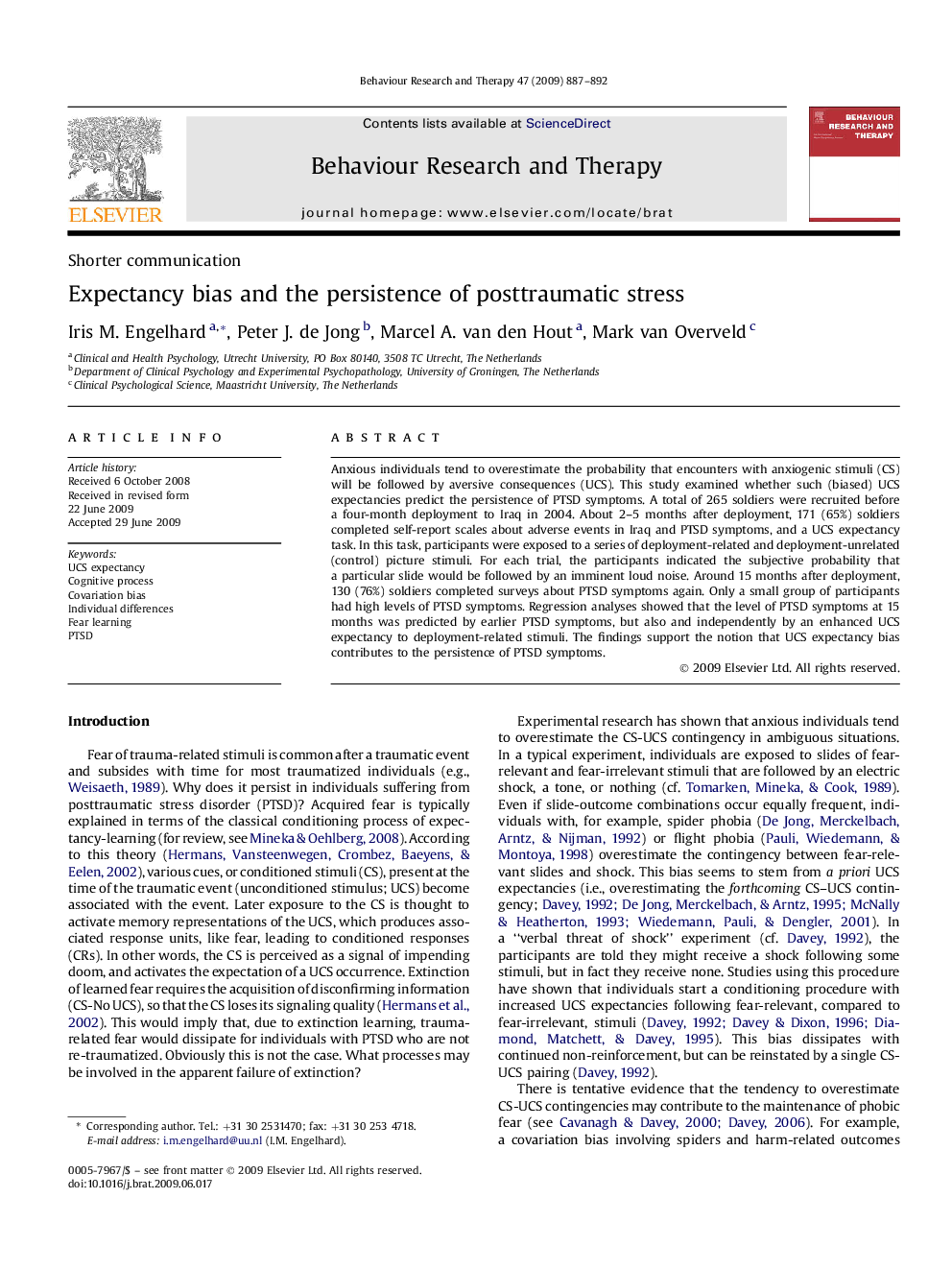| کد مقاله | کد نشریه | سال انتشار | مقاله انگلیسی | نسخه تمام متن |
|---|---|---|---|---|
| 10444578 | 916116 | 2009 | 6 صفحه PDF | دانلود رایگان |
عنوان انگلیسی مقاله ISI
Expectancy bias and the persistence of posttraumatic stress
دانلود مقاله + سفارش ترجمه
دانلود مقاله ISI انگلیسی
رایگان برای ایرانیان
کلمات کلیدی
موضوعات مرتبط
علوم پزشکی و سلامت
پزشکی و دندانپزشکی
روانپزشکی و بهداشت روانی
پیش نمایش صفحه اول مقاله

چکیده انگلیسی
Anxious individuals tend to overestimate the probability that encounters with anxiogenic stimuli (CS) will be followed by aversive consequences (UCS). This study examined whether such (biased) UCS expectancies predict the persistence of PTSD symptoms. A total of 265 soldiers were recruited before a four-month deployment to Iraq in 2004. About 2-5 months after deployment, 171 (65%) soldiers completed self-report scales about adverse events in Iraq and PTSD symptoms, and a UCS expectancy task. In this task, participants were exposed to a series of deployment-related and deployment-unrelated (control) picture stimuli. For each trial, the participants indicated the subjective probability that a particular slide would be followed by an imminent loud noise. Around 15 months after deployment, 130 (76%) soldiers completed surveys about PTSD symptoms again. Only a small group of participants had high levels of PTSD symptoms. Regression analyses showed that the level of PTSD symptoms at 15 months was predicted by earlier PTSD symptoms, but also and independently by an enhanced UCS expectancy to deployment-related stimuli. The findings support the notion that UCS expectancy bias contributes to the persistence of PTSD symptoms.
ناشر
Database: Elsevier - ScienceDirect (ساینس دایرکت)
Journal: Behaviour Research and Therapy - Volume 47, Issue 10, October 2009, Pages 887-892
Journal: Behaviour Research and Therapy - Volume 47, Issue 10, October 2009, Pages 887-892
نویسندگان
Iris M. Engelhard, Peter J. de Jong, Marcel A. van den Hout, Mark van Overveld,